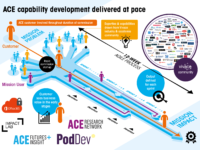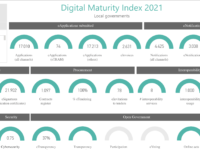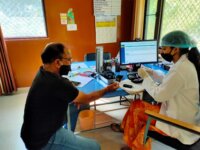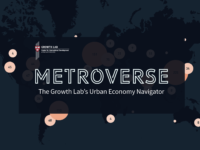A problem for companies and owners of companies is that they need to engage with many different authorities to conduct their business. Instead of building solutions in a siloed approach we aim to build into the ecosystem by integrating different actors and enabling the business to control their own data using blockchains and digital wallets. This is both a new approach and use of a combination of new technologies that benefits the companies.
Innovation Tag: Digital and Technology Transformation
Case Study
BIFIDEX – Official Business and Financial Analytics for the single market in the Western…
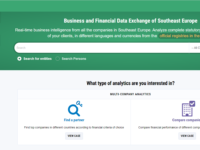
Countries in the Western Balkans created digital infrastructure to support transparent business operation and prevent fraud in their Common Regional Market. The official registries from 5 countries in the Western Balkans created a digital platform, connecting all official legal and financial data about companies, connected entities, blocked bank accounts and sanctioned persons, bridging different legislations, languages and currencies. The platform won the 2022 OECD/SIGMA/ReSPA award.
Government struggles to exploit advances in science and technology that could improve public services. The UK Home Office developed a new, cost-effective model to enable start-ups, Small and Medium-sized Enterprises (SMEs), not-for-profits and academia to solve frontline challenges across UK government using diverse, cutting-edge capabilities and expertise. Uniquely, for UK public sector, it uses flexible, novel ways of working and commercial mechanisms to deliver mission impact at pace.
LAB Justice is the first executive education program, tailor-made for the Justice sector. With a customized learning journey, it was designed to help people working for Justice bodies address the challenges faced to deliver more efficient and people-centred services. Focused on three main areas – strategic management, digital transition and leadership in a context of change –, it aims to ensure the necessary skills to implement reform measures, namely those under the Recovery and Resilience…
Digital transformation is a long-term journey that involves complex changes. One of the challenges is how we evaluate the progress. We are inspired by the quote, "If you cannot measure it, you cannot improve it". Most of Catalonia's municipalities cannot do a digital assessment. The Digital Maturity Index provides an evaluation turnkey solution for local governments. It is based on open data, and it has a clear focus on public value impact.
The Center for Hybrid Intelligence (CHI) has with partners such as UN’s AI4Good and the Danish People Climate Summit piloted a new AI powered game, “Crea.visions,” which allows the general public to collaboratively create and reflect on images of possible futures. Such accessible crowdsourcing of the concerns and solutions of the general public on both global and local complex socio-scientific problems could form a cornerstone in participatory democracy in the digital age.
COVID-19 compelled for national lockdown in India too, the public had no means to consult doctors and specialists. eSanjeevani - a cloud-based population scale, indigenously developed transformative telemedicine platform was rapidly developed & operationalized nationally. eSanjeevani is an innovative solution that has brought about digital transformation (systemic) w.r.t. delivery of health services, the innovation has been a runaway success amongst patients & practitioners.
The Future Tech Challenge (FTC) is a pilot initiative led by DPER to connect and collaborate across the wider ecosystem, and engage in transformative innovation by experimenting with, and applying new technology to address pressing public sector problems and opportunities that deliver improved services to the public. Drive innovation using emerging technology, enhance collaboration, meet National strategic priorities, generate knowledge & learnings and develop prototyped solutions.
Metroverse is an urban economy navigator built at the Growth Lab at Harvard University. It is based on over a decade of research on how economies grow and diversify and offers brand new insights on a city's growth prospects by placing its existing technological capabilities and knowhow at the heart of how diversification unfolds. Metroverse was built using a user-centered design process to help city leaders, policymakers and researchers grapple with 21st-century urbanization challenges.
Connectoo Training aims to reduce the digital divide in Belgium by training public officials to better take into account citizens on the digital fringe. Accessible free of charge and 100% online, connectoo trains and certifies public agents in the challenges of digital inclusion and in the reflexes to adopt to help the most vulnerable citizens with online administrative procedures. Together, we are reconnecting digital public services to citizens. In 2022, the digital divide remains more than…

